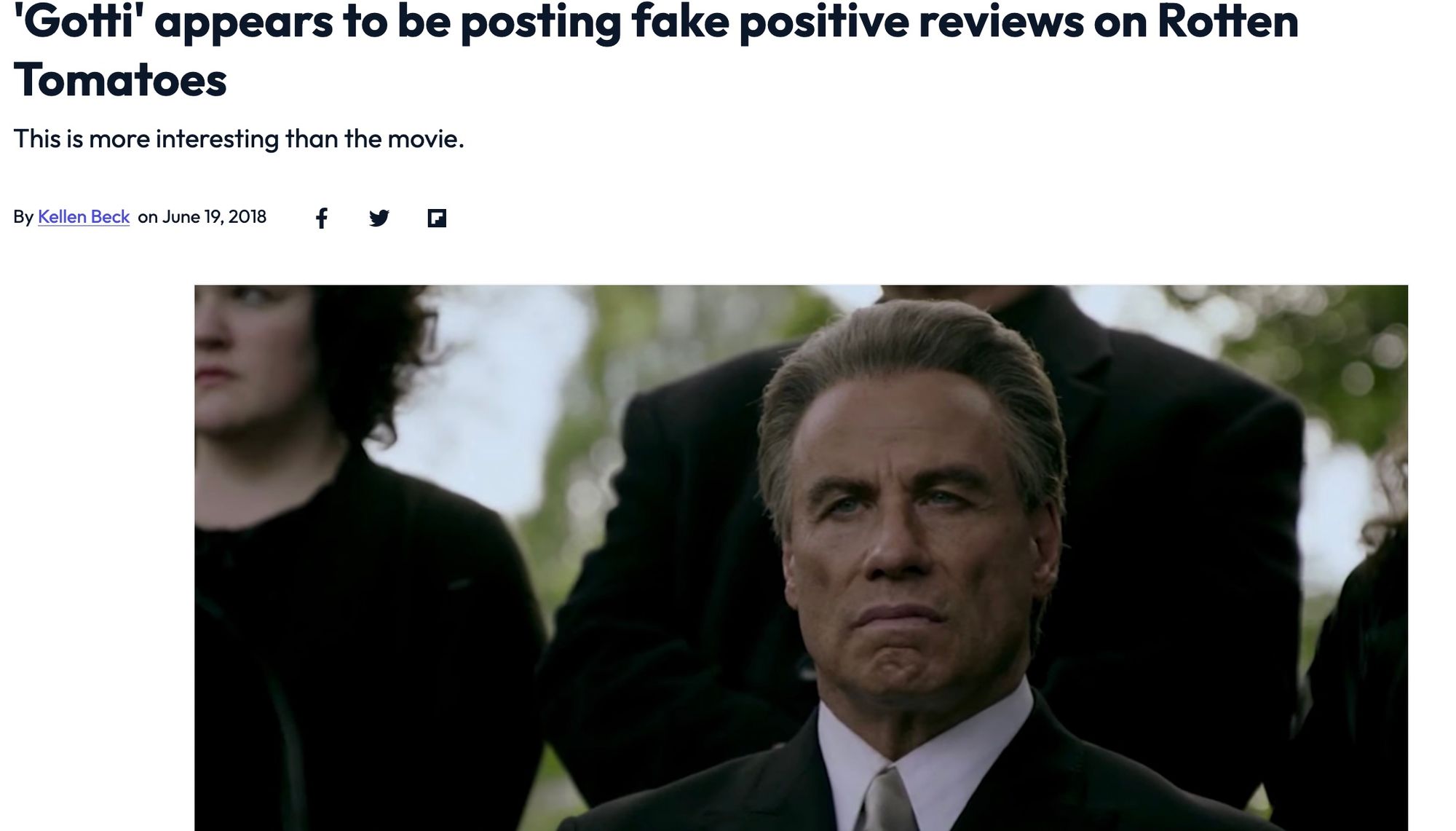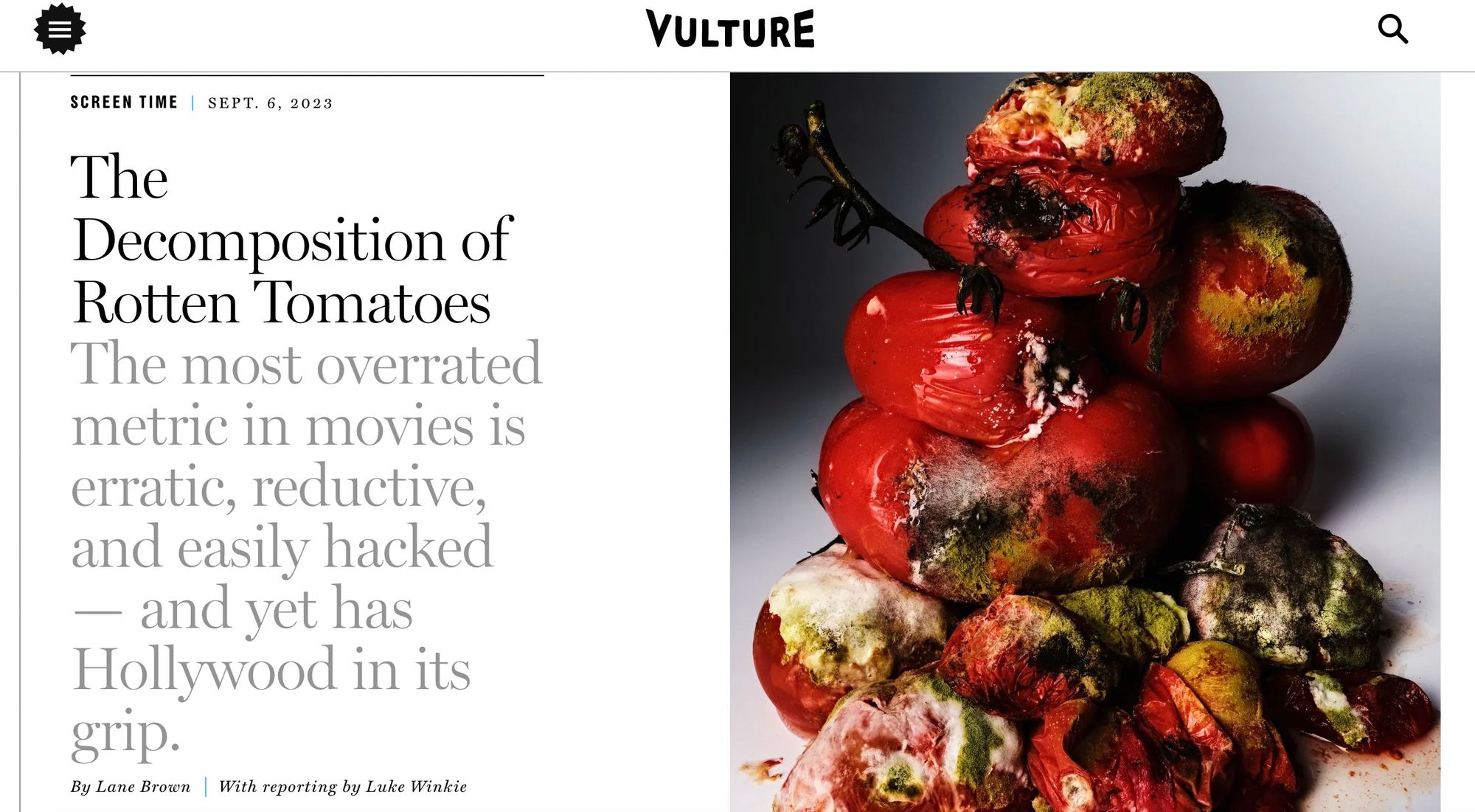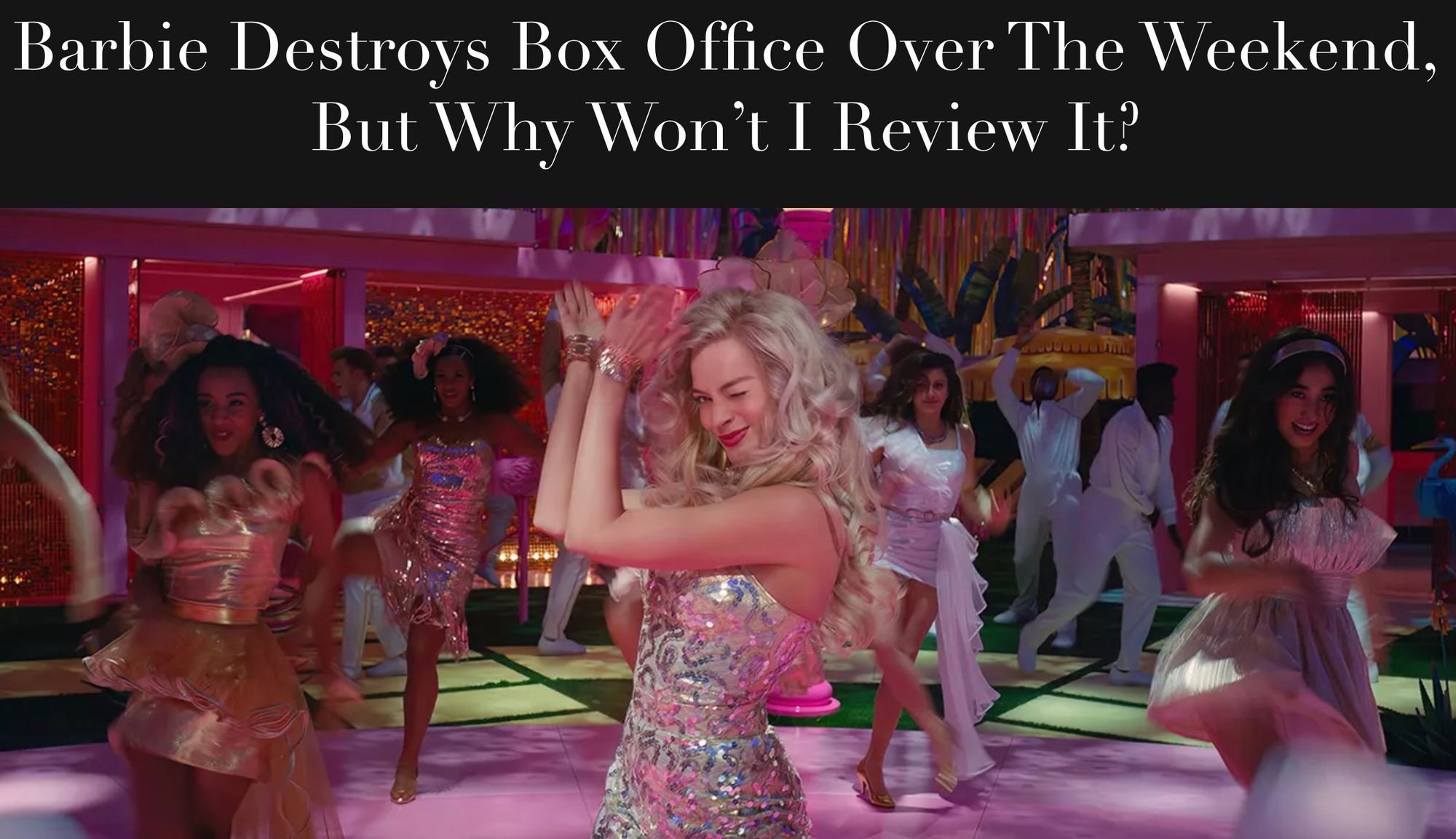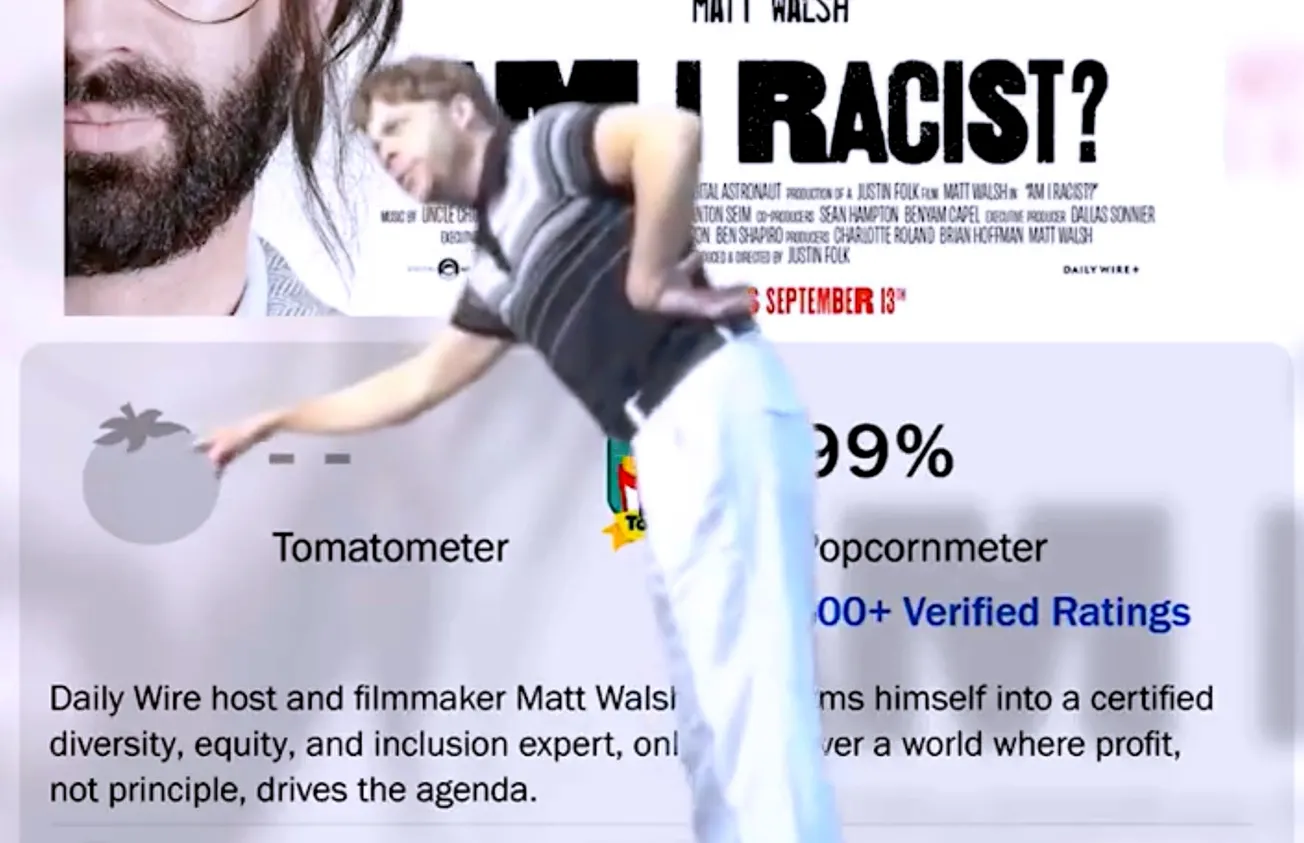Rotten Tomatoes, the critic’s oft-utilized way of being seen and heard by potential audiences, continues in another string of incidents involving fake film ratings. In the last few years, it has only worsened, despite audiences complaining about shady happenings on the popular site and app.
I could say, “has our country lost its sense of professional ethics?” But, it’s a bit late for that discussion, now.
I started following this RT controversy at about 2018, but every year it never fails to happen at least once. Rotten Tomatoes shows just how rotten their platform & system is. It’s not the aggregate scoring idea, that could work just fine if these aggregates come from quality sources. But when not only audience ratings can be manipulated, but the Hollywood media can be influenced as well, we have a problem in the industry, folks. Not just on RT.

From inflated critics reviews to inflated and manipulated audience reviews, both could be used as part of a marketing campaign to get a film noticed, to make it look good, or bad. And just about every year the scandals with RT continue happening. For Marvel’s Captain Marvel it was a full-on campaign to criticize both reviews from “official” critics (who appeared to be in the bag for Marvel) and from fans (an unofficial audience who appeared to be unreasonably against the lady Captain superhero). People in the media said it was because the fans were being too overtly political. I’m not sure how giving a bad review influences someone to elect a certain candidate or can get certain bills passed, but I suppose this was just a way to make someone look bad, possibly.
But before this, there were rumblings from various films. Some big, some small. The idea of “ratio-bombing” a film became of interest, where audiences or critics could stand in opposition to the “other side” of a debate simply by adding an inordinate amount of high or low likes in order to display the “power” they wield online. Or simply by drawing attention to yourself for any reason, at all.
One of the peculiar examples in 2018 was the film Gotti, starring John Travolta. Someone supposedly either posted fake audience reviews, or deflated their critic reviews just to get attention. At least that’s the theory. But the speculations continued on how RT could be corrupted on both sides, both positive and negative. Kellen Beck on Mashable reports on this here.

The situation continued to worsen, so in 2019 RT started their “verified audience” score ratings, which required audience to verify they actually saw the ticket. This actually seemed to make people lose trust in them even more, because of the way they rolled it out. The story is here.
As stated, this actually didn’t improve things, but began to worsen criticism for the platform, especially with Captain Marvel back in March of 2019. The more overt and obvious vulnerabilities were the situation in which a big-pocketed studio like Marvel could theoretically very easily “buy” reviewers, whether real people or fake bots, and influence people to see a film, just by upping the score.
One of the ways this is done is explained here by a critic on the “SyFy Wire: Who Won the Week?” podcast.
Go to the custom link below that plays at the correct spot 49 minutes into the episode.
https://open.spotify.com/embed/episode/55tW5M8Z5r0PXSMPCtma3X?utm_source=generator&t=2967881
This means that the term “access media” is actually very accurate. Referring to the privilege of access (to stars, platforms, and payment) in exchange for (what the critic calls) “playing softball” on certain reviews when asked. “Throwing fights”, as is the term in boxing.
So with these scandals, both with critics and with audience ratings, did things improve? Absolutely not.
Last year it was The Woman King which somehow got a 99% audience score. Gee I wonder how? Evie reports on that here. Also, The Count made a video on this here.
This year it was the live action Little Mermaid, which also had a very high “verified” audience scores inconsistent with its other reviews elsewhere. Here is that story, at Forbes.
The audience scores are far easier to manipulate, since even if verified, they can be bombed and flooded by fake accounts much easier. A bot harvesting operation in China or Thailand or elsewhere could accomplish this very easily.
But now there is a whole scandal brewing, as reported by Vulture. This article by Lane Brown was really the reason this story exists, as it reveals that much of what was speculated before has been confirmed by Vulture, now.

This expose of movie PR company Bunker 15, and of Rotten Tomatoes, as an easily manipulated front for potentially fake critics, shows that Bunker paid for positive reviews from smaller critics. Each positive review got $50, and each negative one… well let’s just say that they might loose access by being placed on a blog that RT wouldn’t see. That’s a cleverly-worded threat that clearly dangles access (or loosing it) in front of them.
Ryan Kinel covers this here as well.
"Hollywood Exposed", credit, Ryan Kinel Outpost on YouTube
This once again, shows that how critics are controlled is through dangling the carrot of access in front of them. If they don’t play ball, this access gets removed.
So, how do we combat this, as simple consumers, families, fans, and day-to-day viewers?
First of all you have to stop being fooled by prestige “official reviewer” designations. Even an official critic can be influenced to play ball with the big corps, and in fact, they are the ones with a target on them to receive even MORE pressure from these mega-corps to do as they’re told.
Secondly, when a platform has proven that it can be manipulated by foul play, or it’s “system” can be “gamed” by a concerted effort to bomb, ratio, or flood it with fake nonsense, you have a vulnerable system that could be lying to you, even if unwittingly. So, I’d frankly stop trusting RT. You don’t hear of these issues with MetaCritic or IMDb (or my rating source, MovieGuide). But, it doesn’t mean that those won’t get ruined eventually, either.
Speaking of which, I personally go to MovieGuide, to get what I consider to be more “values-centric ratings,” but there are other places, as well as individual reviewers who I trust far more than an aggregate of Hollywood bottom-dwellers.
Here is an article I wrote about which critics & reviewers I go to to prevent myself from watching terrible films. But this isn't the only reason I do it. It's because I refuse to support the weak linguini-spines of the zombies in Hollywood who simply do what they're told. I support counter-culture voices that value their American freedoms instead (*see the "Parallel Economy").

As stated, it doesn’t mean that these critics can’t be corrupted. That’s not impossible. But it’s going to be far more difficult to corrupt an individual who doesn’t need that $50, nor that valuable media access, in exchange for a positive review, because they are already getting paid by online fans who trust them due to their integrity, skepticism, and anti-Hollywood ethics. The chance they will risk those paying fans leaving them for a few bucks is going to be much more unlikely. Their ideology, such as an anti-Hollywood ideology, doesn’t just shift on a dime, especially when it’s what people care about & talk about all day on Youtube with trusted influencers. This becomes your branding.
It is those who are part of this larger cultural backlash, not the old professional “opportunism” you see with the corporate types, who are likely going to survive and even thrive during this Hollywood backlash. You don’t have to agree with them, but at least you know they’re likely a far more trustworthy reviewer, being that they aren’t a fixture of that Hollywood system.
What is our involvement, our opinion, and our solution to this? Yes, we have one. Go to our social media on twitter (X) for that.
Did you enjoy this article? Do you agree with the critical Hollywood backlash? Let us know on our social media, or comment down below (with subscription).
How do terrible Hollywood films keep getting good critical reviews on Rotten Tomatoes? It's called Access Media https://t.co/iWcFJ4gEPa via @themediamoses
— Media Moses (@themediamoses) September 7, 2023










